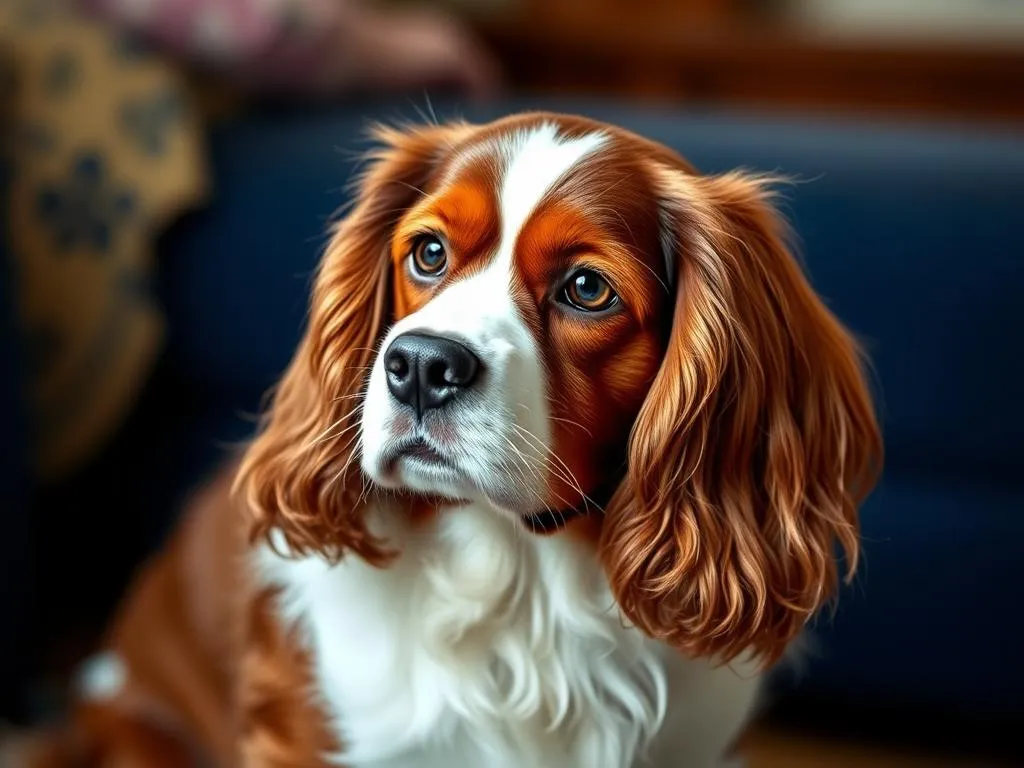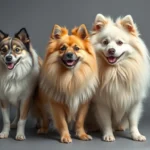
Cavalier King Charles Spaniels are beloved companions known for their affectionate nature and charming personalities. But how smart is a Cavalier King Charles Spaniel? Understanding the intelligence of this breed is vital for potential owners, as it plays a significant role in behavior, trainability, and overall compatibility with family life.
Understanding Dog Intelligence
Definition of Dog Intelligence
Dog intelligence can be multifaceted, encompassing various forms of cognitive skills. Generally, it can be categorized into three primary types:
-
Instinctive Intelligence: This refers to the innate ability of a dog to perform tasks for which they were bred. For example, herding dogs like the Border Collie excel in herding, while retrievers are adept at fetching.
-
Adaptive Intelligence: This reflects a dog’s ability to solve problems and learn from their environment. It’s about how well a dog can adapt to new situations and challenges.
-
Working/Obedience Intelligence: This type measures how well a dog can learn commands and follow instructions. It’s often evaluated through obedience trials and training sessions.
Measuring Dog Intelligence
The intelligence of dog breeds is frequently measured using various methods. One notable approach is Stanley Coren’s intelligence rankings, which classify breeds based on their working/obedience intelligence. The rankings consider how quickly and accurately dogs respond to commands.
Common assessment methods include:
- Obedience Tests: Dogs are asked to follow commands like “sit,” “stay,” and “come,” with time taken into account.
- Problem-Solving Ability: Tests may involve puzzles or tasks that require the dog to use reasoning to achieve a goal, such as retrieving a treat from a container.
Characteristics of Cavalier King Charles Spaniels
Breed History and Traits
Cavalier King Charles Spaniels have a rich history that dates back to the royal courts of England. Bred as companion dogs, they were favorites among nobility, and their charm and gentle demeanor made them popular family pets.
Physically, Cavaliers are small dogs, typically weighing between 13 to 18 pounds and standing about 12 to 13 inches tall. They have a silky, medium-length coat that comes in various colors, including Blenheim (chestnut and white), tricolor (black, white, and tan), ruby (solid red), and black and tan.
In terms of temperament, Cavalier King Charles Spaniels are known for their friendly and affectionate nature. They are playful, eager to please, and often form strong bonds with their families.
Social Behavior and Interaction
Cavaliers are highly sociable dogs that thrive on interaction with humans and other pets. They are known for their gentle disposition and affectionate behavior, making them ideal companions for families, singles, and seniors alike. Their easygoing nature allows them to get along well with children and other animals.
As companion dogs, they tend to follow their owners around the house, seeking attention and affection. This strong attachment often leads to anxiety when left alone, highlighting the importance of socialization and companionship for this breed.
Assessing Intelligence in Cavalier King Charles Spaniels
Problem-Solving Skills
When exploring how smart is a Cavalier King Charles Spaniel, one notable aspect is their problem-solving skills. Cavaliers display a surprising level of resourcefulness in everyday situations. For instance, many owners report their Cavaliers figuring out how to open doors or find hidden treats.
Anecdotal evidence from owners and trainers suggests that Cavaliers can learn from their experiences. They can recognize patterns and adapt their behavior based on past outcomes, which is a clear sign of cognitive ability.
Trainability and Obedience
Cavalier King Charles Spaniels are generally considered easy to train. Their eagerness to please makes them responsive to commands and training sessions. Basic commands like “sit,” “stay,” and “come” are typically mastered quickly by Cavaliers.
Moreover, they can learn various tricks such as rolling over or playing dead, showcasing their willingness to engage in training activities. When compared with other breeds, Cavaliers tend to rank favorably in trainability due to their gentle temperament and desire to bond with their owners.
Adaptive Intelligence
The adaptive intelligence of Cavalier King Charles Spaniels is another facet worth discussing. These dogs are quick to adjust to new environments and changes in routine. For instance, they can exhibit changes in behavior based on who is present in a room or how their owners respond to them.
Examples of adaptive behaviors include:
- Learning to navigate different surfaces, whether it’s grass, carpet, or tile.
- Adjusting their play style when interacting with larger or smaller dogs.
- Understanding household rules, such as which areas are off-limits.
Comparison with Other Breeds
Intelligence Rankings
When comparing the intelligence of Cavalier King Charles Spaniels with other breeds, it’s essential to consider Stanley Coren’s rankings. Cavaliers typically rank around the average mark for dog intelligence, which places them above many breeds but below highly intelligent breeds like Border Collies and Poodles.
Here’s a brief comparison:
- Higher Intelligence: Border Collie, Poodle, German Shepherd
- Average Intelligence: Cavalier King Charles Spaniel, Bulldog, Beagle
- Lower Intelligence: Basset Hound, Chihuahua, Afghan Hound
Similar Breeds
There are several breeds with intelligence levels similar to that of the Cavalier King Charles Spaniel. These include:
- Cocker Spaniel: Like Cavaliers, they are friendly and eager to please, making them trainable and adaptable.
- Bichon Frise: Known for their playful nature, they also share similar traits in terms of trainability and social behavior.
- Papillon: This small breed is known for its intelligence and problem-solving skills, often ranking similarly in intelligence assessments.
Factors Affecting Intelligence in Cavalier King Charles Spaniels
Environment and Upbringing
The intelligence of a Cavalier King Charles Spaniel can be significantly influenced by its environment and upbringing. Early socialization is crucial, as it exposes the dog to various experiences, people, and other animals. A well-socialized Cavalier is likely to develop better problem-solving skills and adaptability.
Additionally, a stimulating environment can enhance cognitive development. Engaging activities, training sessions, and interactive play can help keep a Cavalier mentally sharp and prevent boredom-related behaviors.
Health and Nutrition
Overall health and nutrition are also critical factors affecting the cognitive abilities of Cavalier King Charles Spaniels. Proper nutrition supports brain health, while certain health issues can impact their cognitive function.
Cavaliers are prone to specific health conditions, such as mitral valve disease and syringomyelia, which can affect their overall well-being. Regular veterinary check-ups, a balanced diet, and appropriate exercise are essential for maintaining both physical and mental health.
Tips for Training and Stimulating a Cavalier King Charles Spaniel
Effective Training Methods
When training a Cavalier King Charles Spaniel, it’s crucial to use effective methods that resonate with their personality. Positive reinforcement is highly effective; rewarding good behavior with treats, praise, or playtime encourages Cavaliers to repeat desired actions.
Consistency is key in training sessions, as it helps reinforce learned behaviors. Short, engaging training sessions are also beneficial, as Cavaliers can lose focus if sessions are too lengthy.
Mental Stimulation Activities
To keep a Cavalier’s mind sharp, incorporating mental stimulation activities is vital. Here are some suggestions:
- Interactive Toys: Toys that require problem-solving, such as puzzle toys, can keep Cavaliers entertained and mentally engaged.
- Hide and Seek: Play a game of hide and seek where you hide treats around the house for your Cavalier to find.
- Agility Training: Setting up a mini agility course in your backyard can provide both physical and mental challenges.
Engaging in these activities not only stimulates their minds but also strengthens the bond between the dog and their owner.
Conclusion
In summary, how smart is a Cavalier King Charles Spaniel? This breed displays a commendable level of intelligence characterized by strong problem-solving skills, trainability, and adaptive behaviors. While they may not rank at the top of the intelligence scale, their eagerness to please and affectionate nature make them exceptional companions.
For potential owners, it’s essential to understand the intelligence of Cavaliers in the context of their lifestyle and needs. With the right training, socialization, and mental stimulation, Cavalier King Charles Spaniels can thrive, showcasing their intelligence and forming lasting bonds with their families.









